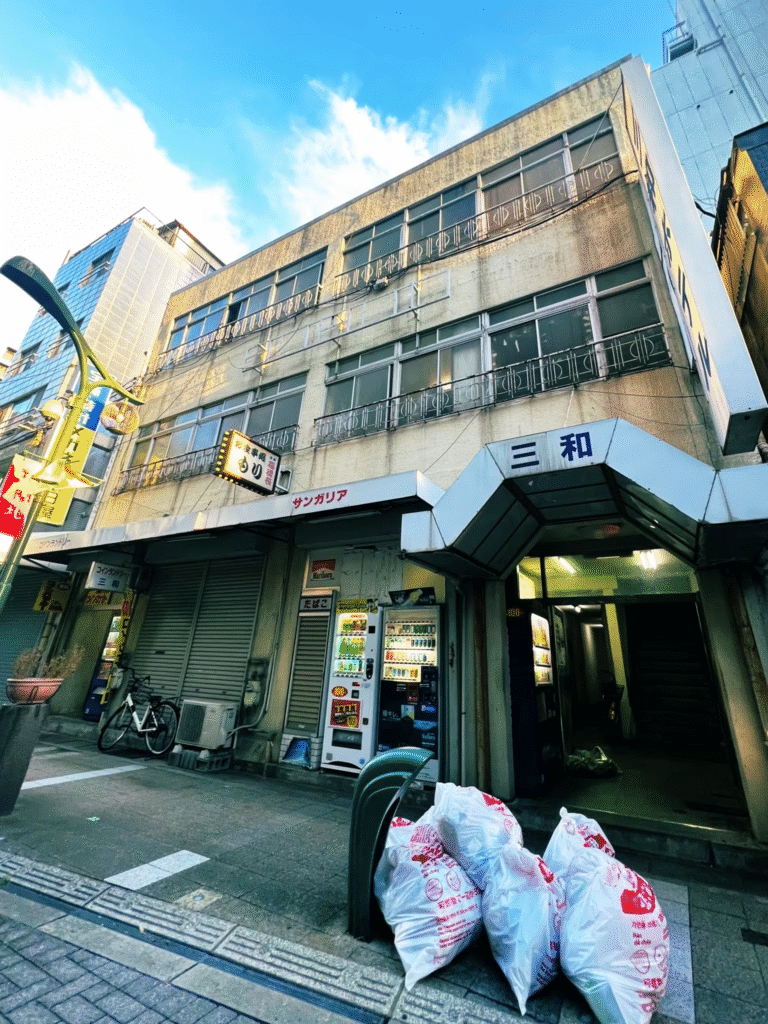From Obscurity to Infamy
Tucked away In an unassuming corner of Japan, the Sanwa Hotel was once just another budget accommodation catering to travelers looking for a cheap place to crash. However, over time, its reputation took a nosedive as guests began sharing horror stories online. Google Reviews are littered with complaints about moldy walls, broken fixtures, and an overwhelming sense of uncleanliness. One reviewer even claimed to have found unidentifiable stains on the bedding, while another described the smell as “a mix of mildew and regret.” These scathing reviews have cemented the Sanwa Hotel’s status as a cautionary tale for travelers—yet, paradoxically, they’ve also fueled its rise as a must-visit destination for the daring.


No Online Booking, No ID, Just Mystery
For those bold enough to take on the Sanwa Hotel challenge, securing a room is an adventure in itself. Unlike most modern accommodations, the Sanwa Hotel has no official website or online booking system. Reservations cannot be made in advance, and rooms are allocated on a first-come, first-serve basis for walk-in guests only. Adding to the hotel’s enigmatic allure, no form of identification is required to check in, allowing guests to remain completely anonymous. This lack of formalities shrouds the identities of its visitors in mystery, fueling speculation about who might be brave—or reckless—enough to spend a night there. The absence of ID checks only deepens the hotel’s reputation as a place where secrets and stories converge.
The Tiktok Challenge: A Night at Sanwa
Recently, the Sanwa Hotel has found a new audience on Douyin, China’s version of TikTok. Chinese content creators, known for their bold and often humorous takes on travel, have turned staying at the Sanwa Hotel into a viral challenge. The premise is simple but daunting: check in, document the experience, and see if you can survive a night in what’s widely regarded as Japan’s filthiest hotel. These firsthand accounts have racked up millions of views, blending equal parts horror, humor, and morbid curiosity.
In one popular video, a Douyin creator pans their camera across a room with peeling wallpaper and a suspiciously stained carpet, narrating their experience with a mix of nervous laughter and disbelief. Another influencer jokingly brought their own cleaning supplies, attempting to sanitize the room before daring to sit on the bed. Comments on these videos range from viewers expressing shock at the conditions to others egging on the creators to “tough it out” for the sake of content. The hashtag #SanwaChallenge has gained traction, with users sharing tips like “bring your own sheets” or “don’t look too closely at the corners.”
Why the Fascination?
So, what drives people to willingly book a stay at a hotel with such a dreadful reputation? For some, it’s the thrill of testing their limits, much like visiting a haunted house or trying an extreme sport. The Sanwa Hotel offers a unique kind of adventure—one that’s equal parts disgusting and intriguing. For content creators, the hotel is a goldmine for viral content, as viewers are drawn to the spectacle of someone braving the unthinkable. The challenge also taps into a broader trend on Douyin, where creators push boundaries to stand out in a crowded digital space.

Additionally, the Sanwa Hotel’s infamy highlights a curious aspect of modern tourism: the allure of “anti-attractions.” Just as some travelers seek out abandoned buildings or disaster sites, others are drawn to places that promise an experience far removed from the polished veneer of typical tourist hotspots. The Sanwa Hotel, with its unapologetic grime, offers a raw, unfiltered glimpse into a side of Japan rarely seen in travel brochures.
The Bigger Picture
The Sanwa Hotel phenomenon also raises questions about the role of social media in shaping travel trends. Platforms like Douyin have the power to turn obscure locations into global sensations overnight, often amplifying their quirks—good or bad—for entertainment value. While the hotel’s owners may not have intended to become a viral spectacle, the influx of curious visitors could paradoxically breathe new life into their business. However, it’s unclear whether this newfound fame will prompt any improvements to the property or if its grimy charm is precisely what keeps the crowds coming.
For now, the Sanwa Hotel remains a polarizing destination: a nightmare for some, a quirky challenge for others. As more social media creators take on the challenge, the hotel’s legend continues to grow, proving that even the dirtiest corners of the world can find a place in the spotlight.
Would You Dare to Stay?
Have you heard of the Sanwa Hotel, or maybe even considered taking on the challenge yourself?




